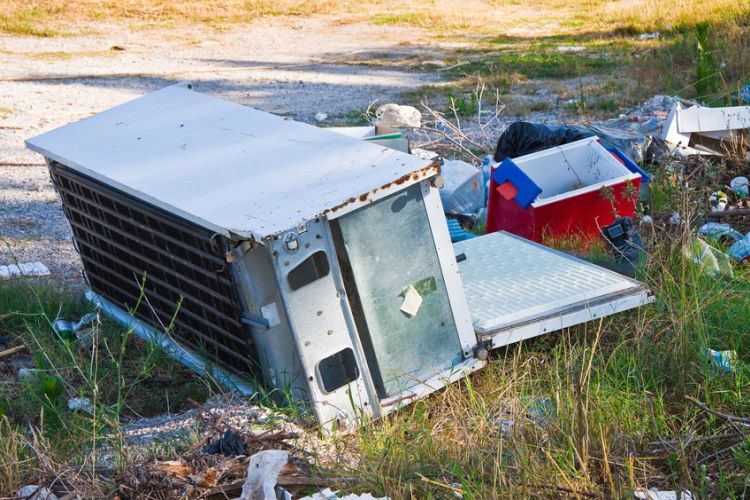
New guidance on how recycling centres can be safely re-opened has been published as farmers report an increased number of flytipping incidents during the Covid-19 crisis.
Rural areas across the UK have been used a dumping ground as the public struggle to deal with excess waste since coronavirus restrictions were introduced.
The Ulster Farmers’ Union (UFU) said it is 'vital' that councils start putting measures in place as waste crime in the countryside 'spirals out of control'.
Now the government has published guidance for local authorities on how they can safely re-open their Household Waste and Recycling Centres (HWRCs).
Councils are being encouraged to open sites to avoid the build-up of waste and reduce the opportunity for flytipping - but only where social distancing can be maintained.
Under the terms of the lockdown, householders can travel to a centre if the waste in their home presents a risk of injury or a risk to public health or the local environment.
The guidance sets out how local authorities could manage access and the number of people who are able to be on site at any one time.
If possible, waste should continue to be stored safely and disposed of using regular council collections, the guidance states.
Environment minister Rebecca Pow said maintaining crucial waste services while protecting public health remains a top priority during these unprecedented times.
"We are publishing this guidance to help local authorities re-open their recycling centres over the coming days and weeks.
"This will ensure that more waste can be properly disposed of and we avoid the likelihood of fly-tipping," she said.
The process of reopening HWRCs will be gradual. It will be based on whether centres have enough staff, social distancing measures are in place and the availability of personal protective equipment.
Councils will introduce measures to keep staff and customers safe, for example by managing visits through pre-booked time slots.
